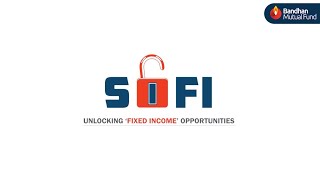Category : Investing Guides September 10, 20245 minutes read
While making investment decisions, investors may be faced with a choice between equity funds vs debt funds.
What is the meaning of equity funds?
Equity funds are a type of mutual fund which invests predominantly in equities and equity-related securities. They are usually considered a high-risk investment option.
What is the meaning of debt funds?
Debt funds are a type of mutual fund which invests primarily in fixed-income securities, money market instruments, corporate and government bonds and corporate debt securities. They are usually considered to be a low to moderate-risk investment option. W
When comparing equity funds vs debt funds, it is necessary to consider their investment horizon, asset allocation, risk, potential returns and individual investor’s goals.
The difference between debt mutual fund and equity mutual fund is that debt funds primarily invest in debt and money market securities. They are usually less risky with potential to generate reasonable returns. Equity investments, on the other hand, involve purchasing shares or stocks in a company, and carry more risk with potential for better returns.
SIP (Systematic Investment Plan) is a mode of investing in Mutual Funds. It can be used for both equity and debt investments. It depends on the mutual fund scheme you choose for your SIP.
Equity Funds vs. Debt Funds: Debt investments may be generally considered a low risk investment option due to the potential stability of fixed income securities, whereas equity investments can carry more risk due to market fluctuations. However, investors with long-term financial goals, seeking wealth creation may be suited to equity funds.
While returns from debt funds can be advantageous, they are usually less than those from equity funds. They may provide income while posing less risk.
Equity funds should be taken into consideration by investors who can tolerate market volatility, have a longer investment horizon, a higher risk tolerance, and a desire for perhaps potentially better returns.
Debt funds are a more conservative investing option for investors who have a lower risk tolerance, a shorter investment horizon, or who are looking for potentially steady returns.
Introduction
Sometimes navigating the complex world of investing can be confusing. This guide will compare equity funds vs debt funds to help you navigate the financial environment. Debt funds and equity funds are two different investing options, each with pros and downsides of its own. Read on to know more about equity and debt funds and identify which type of fund may help you potentially achieve your financial goals.
Equity funds are mutual fund investments that invest predominantly in equity and equity-related securities. According to the regulation, equity funds have to invest at least 65% of their corpus in equities. An equity fund is a kind that is mostly used for stock or business share investments.
Before comparing equity funds vs debt funds, it is necessary to understand the types of equity funds.
Read more about the meaning of equity funds in India.
Types of Equity Funds: Investment Style
- Active Equity Funds: Active equity funds adopt an active investment strategy. Fund managers actively manage the fund and make decisions on the basis of market conditions. Active equity funds may often aim to out-perform their benchmark index.
- Passive Equity Funds: Passive equity funds adopt a passive investment strategy. They are designed to mimic the performance of popular market indices like the Nifty Fifty or Sensex.
Types of Equity Funds: Market Capitalisation
Market capitalisation, or the value of a company’s stock on the capital market, can be used to further classify equity funds. This classification comprises Large Cap, Mid Cap and Small Cap funds.
- Large Cap Equity Funds: Large cap equity funds are mandated to invest 80% of their assets in equity and equity-related securities of large cap companies. These funds invest predominantly in the stocks of large cap companies, which may be relatively less vulnerable to market volatility. Large cap companies are the top 100 companies listed in the stock market.
- Mid Cap Equity Funds: Mid cap equity funds are mandated to invest 65% of their assets in equity and equity-related securities of mid cap companies. In India, companies ranked from 101 to 250 are classified as mid cap companies. As these funds invest primarily in stocks of mid cap companies they may have a moderate level of risk associated with them.
- Small Cap Equity Funds: According to the regulation, small cap funds are mandated to invest at least 65% of the funds corpus in equity and equity-related securities of small cap companies. Small cap stocks can be volatile and vulnerable to market fluctuations, which makes these funds a risky investment option.
- Multi Cap Funds: These funds diversify across market capitalizations, investing in small, mid, and large-cap stocks. This may offer a balance of potential growth and stability. They are classified as a high-risk fund and have a medium to long-term investment horizon.
- Flexi Cap Funds: They have the flexibility to invest in companies across market caps, adjusting their allocation based on market conditions.
Types of Equity Funds: Tax-Saving
An important criterion to consider when comparing equity fund vs debt fund is their tax-saving features.
- ELSS (Equity-Linked Savings Scheme): ELSS funds invest primarily in equities and offer tax benefits under Section 80C of Income Tax Act, 1961. Under Section 80C of the Income Tax Act of 1961, Equity-Linked Savings Scheme (ELSS) provides investors a chance to receive a tax rebate of up to INR 1,50,000.These funds have a lock-in period of 3 years.
Types of Equity Funds: Sectoral and Strategy
- Value Funds: Value funds seek undervalued stocks and follow a value investing strategy. They may offer long-term potential but come with moderate risk. Investment horizon: Long-term.
- Infrastructure Funds: These funds invest in infrastructure-related companies, including construction, utilities, and transportation. Investment horizon: Long-term. Asset allocation varies.
- Transport & Logistics Funds: Focusing on companies involved in the transportation and logistics sector, these funds may offer growth opportunities but are subject to industry-specific risks. Investment horizon: Long-term. Asset allocation varies.
Features of Equity Funds:
Let’s understand the features of equity funds before comparing equity fund vs debt funds. Some of the features of equity funds are:
Potential Returns
Equity fund returns may be favourable for investors in the long-run. Over an extended period, equity funds may potentially have the capability to provide reasonable returns. Their primary source of investment is company shares, thus they have the potential to gain from the expansion and success of these businesses.
Tax Saving
The only kind of mutual funds that qualify for tax deductions under Section 80C of the Income Tax Act of 1961 is an Equity-Linked Savings Scheme (ELSS). ELSS and its tax benefits may benefit investors as they provide a chance to receive a tax exemption of up to INR 1,50,000.
Read more about the benefits of ELSS mutual funds
Investment Horizon
Investors with a longer investment horizon are usually advised to invest in equity funds. This is due to the fact that investments may not develop to their full potential right away and may be more volatile in the short run. In order to weather market volatility, investing in equity funds is often suggested with a medium-to-long-term horizon of at least five years.
Taxation
If you redeem your investments in an equity fund within a period of one year from the date of investment, the potential gains you earn are categorised as short-term capital gains. These gains are subject to taxation at a rate of 15%, and an additional 4% cess is levied on the tax amount.
If you hold your equity fund units for over one year, the potential returns you earn fall under the category of long-term capital gains. For long-term capital gains exceeding Rs 1 Lakh in a financial year, a tax rate of 10% is applicable, with an additional 4% cess. It’s important to note that long-term capital gains up to Rs 1 Lakh are entirely tax-free.
In essence, these tax regulations offer a significant benefit to investors by exempting a portion of their long-term capital gains from taxation, thereby encouraging long-term investment in equity funds. This can serve as a motivation for investors to hold their investments for a more extended period, potentially reaping greater tax advantages.
Embrace a disciplined wealth-building journey and invest in equity funds via SIP! Invest with Bandhan Mutual Fund today.
Equity funds invest predominantly in equities or stocks. There are several types of equity funds including, active and passive equity funds, large cap funds, mid cap funds, small cap funds, flexi cap funds, infrastructure funds, multicap funds, ELSS funds, value funds etc. Most equity funds may be suitable for potential wealth creation in the long-run. A key benefit of ELSS funds is their tax-saving features, which may be beneficial for investors.
A debt fund is a mutual fund investment that predominantly invests its assets in debt and money market instruments. These funds invest in fixed income assets such as money market instruments, corporate and government bonds, and corporate debt securities and their fundamental objective is to offer investors chances for capital growth. Potential debt fund returns may be lower, however these funds are relatively less risky. A diversified investment portfolio may include debt funds as they may provide potential stability and income. Investing through a debt fund SIP may offer a disciplined approach to wealth accumulation, providing peace of mind in volatile markets
The interest rates of a debt scheme’s underlying assets have an impact on its net asset value (NAV). The total NAV of the fund may also be impacted by modifications to the debt instruments owned by it, including upgrades or downgrades in credit rating. Together, these dynamic elements influence debt fund performance and valuation.
Read more about the meaning of debt funds in India.
Types of Debt Funds:
To compare equity funds vs debt funds accurately, lets look at the types of debt funds.
- Low Duration Debt Funds: These funds are also known as short-term debt funds. Short-term debt funds invest in commercial papers and treasury bills. They are better suited for investors with a short- to medium-term time horizon and low-risk appetite.
- Medium Duration Debt Funds: These funds provide a potential balance between risk and return by allocating to somewhat longer-term debt instruments. A common investment horizon is one to three years. These are suitable for investors who have a longer investing horizon—typically three years or longer.
- Ultra Short-Term Debt Funds: These funds invest in extremely short-term debt instruments with low risk. These funds may be suitable for investors seeking higher potential returns than a low-risk savings account.
- Liquid fund: Liquid fund focuses on highly liquid, low-risk debt securities. Liquid funds may be suitable for short-term investments with immediate redemption options.
- Corporate Bond Funds: This type of debt fund concentrates on corporate bonds, which can offer potentially higher yields. These funds have moderate risk and may be suitable for medium to long-term investments.
- Dynamic Bond Funds: These funds have the flexibility to adjust their portfolio based on interest rate movements. They are moderately risky, with a variable investment horizon.
- Credit Risk Funds: These funds invest in lower-rated or riskier corporate bonds, offering potentially higher returns but also higher risk. They have a longer investment horizon to mitigate risk.
- Money Market Funds: These funds primarily invest in money market instruments. They are low risk and suitable for short-term investments.
- Banking & PSU Funds: These funds focus on bonds issued by banks and public sector undertakings (PSUs). They have lower risk and may be suitable for short to medium-term investments.
- Floating Rate Funds: These funds invest in bonds with floating interest rates. They have lower interest rate risk and may be suitable for investors with a medium to long-term horizon.
Features of Debt Funds:
While comparing equity fund vs debt funds, it is important to understand the features of debt funds in detail.
Reduced Risk Exposure
Debt funds are more impacted by the dynamics of interest rates in the overall economy, therefore they are comparatively less vulnerable to direct stock market volatility. But when contrasted with the sometimes erratic moves in the stock market, these variations in interest rates typically have less impact.
Debt Fund Returns
Debt funds are naturally drawn to investments that have known interest rates and maturity dates and provide reasonable returns. As a result, there is lesser risk involved with debt mutual funds.
Taxation
Many common debt investment choices are subject to taxation based on the income tax slabs relevant to the individual’s overall income. However, it’s worth noting that long-term capital gains (LTCG) arising from certain debt investment options receive a preferential tax treatment, with a fixed tax rate of 10%.
Invest in a debt fund and potentially manage risk in your investment portfolio! Invest with Bandhan Mutual Fund today.
Debt funds invest predominantly in fixed-income securities such as debt instruments, bonds, money market instruments etc. There are several types of debt funds with different investment horizons and risk levels. These include low-duration funds, medium-duration funds, long-duration funds, liquid funds, ultra-short-term funds, bond funds, banking and PSU debt funds, money market funds etc. Debt funds generally have a lower level of risk and returns. Most debt funds do not have any tax-saving benefits.
The following are the key points of difference between debt fund and equity fund:
| Differences | Equity Funds | Debt Funds |
| Meaning | Invest largely in company stocks. | Invest in bonds and other fixed income securities. |
| Types | Include Large Cap, Mid Cap, Small Cap, Multi Cap Flexi Cap, ELSS, and others. | Types of debt funds Include Short-Term, Mid-Term, Long-Term, Ultra Short-Term, Corporate Bond, Dynamic Bond, and more. |
| Risk | Generally in comparison of Equity Funds vs. Debt Funds they are more risky as a result of market swings and stock market volatility. | Because fixed income instruments are comparatively stable, there is often less risk. |
| Taxation Laws | Consider the potential tax advantages with an equity fund
Short-Term Gains (sold within one year): Taxed at 15% + 4% cess. Long-Term Gains (held for over one year): Taxed at 10% + 4% cess for gains exceeding Rs 1 Lakh; up to Rs 1 Lakh is tax-free. |
Many common debt investment choices are subject to taxation based on the income tax slabs relevant to the individual’s overall income. However, it’s worth noting that long-term capital gains (LTCG) arising from certain debt investment options receive a preferential tax treatment, with a fixed tax rate of 10%. |
| Investment Horizon | Generally, a long investment horizon, over 3 years. | The equity and debt fund difference is in its span- debt funds can be short, medium, and long-term goals. |
| Tax savings | ELSS funds provide tax benefits under Section 80C of the Income Tax Act, 1961. | No specific tax-saving benefits. |
| Potential Return | Potential for higher returns over the long-term, but with higher volatility. | Potential for reasonable returns, with lower volatility. |
- Choosing between Equity Funds vs. Debt Funds is a balancing act between growth potential and stability in your investment journey.
- Equity mutual funds meaning refers to investment vehicles that pool money from multiple investors to buy a diversified portfolio of stocks or shares in various companies
- Types of equity funds include Large Cap, Mid Cap, Small Cap, Multi Cap, Flexi Cap, ELSS, and more.
- Generally higher risk due to market volatility.
- Taxed at 15% (plus 4% cess) for short-term capital gains and 10% (plus 4% cess) for long-term capital gains exceeding Rs 1 Lakh.
- Suited for a medium to long-term investment horizon (5 years or more).
- ELSS funds provide tax benefits under Section 80C of the Income Tax Act, 1961.
- Investors can explore the dual advantage of potential growth and tax savings with a tax saving equity fund, adding a strategic edge to your investment portfolio.
- Debt funds invest in bonds and other fixed income securities.
- Types of debt funds include Short-Term, Mid-Term, Long-Term, Ultra Short-Term, Corporate Bond, Dynamic Bond, and more.
- Generally lower in the comparison of Equity Funds vs. Debt Funds the risk due to the potential stability of fixed income instruments.
- Taxation varies based on the income tax slabs for most debt investments, with long-term capital gains taxed at a favorable rate of 10% (plus 4% cess).
- No specific tax-saving benefits except for certain specific debt investments.










